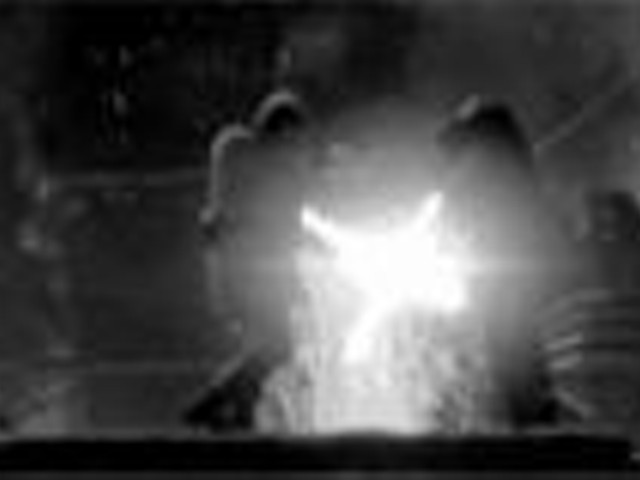Like any good documentary, Mondovino is about much more than its immediate subject. In this case, the subject is wine, and what multinational corporations are doing to it, but in that story there are many others. There is the drama of generations and the relationships among them; there is the conflict of the classes; there is, very deeply, the story of humans and their relationship with nature, and beneath that with pleasure and joy, and beneath that with themselves and their souls. What's great about Mondovino is that, while it provides a clear view of the current state of wine, the film's chief investment is in these other, fundamental stories.
A substantial segment of the film focuses on Aniane, a small village in France where Robert Mondavi once set its sights. Initially, the town was receptive to the American giant, which intended to cultivate a lush forest adjacent to an independent vineyard. Then Aniane's socialist mayor was replaced with a communist one (only in France), who opposed the deal, and Mondavi was forced to look elsewhere. The defeat relieved Aimé Guibert, the independent winemaker whose hectares lie next to the forest in question. To Nossiter, Guibert frets, "Wine is dead. And cheese. And fruit." An old-school proponent of terroir (the French word for "territory," conveying the distinct flavor accrued by wines long cultivated in a single region), he explains that "wine has been a nearly religious relationship between man and the elements of nature." Translation: Mondavi is profane.
In contrast to the victory against globalization at Aniane, Mondovino offers the story of Ornellaia, a respected Tuscan wine once made by an independent Italian vintner -- and then acquired by Mondavi. In Tuscany, instead of entering into the region and attempting to buy off plots, Mondavi devised a less transparent scheme. First, the company partnered with Frescobaldi, an aristocratic Italian family whose archives reach back to the year 1200. (Among their copious collection of historical documents is a letter from King Henry VIII, requesting Frescobaldi wine.) Then, Frescobaldi acquired its unsuspecting neighbor, an independent winemaker who believed he was selling to an Italian brand, and Mondavi swept in.
The Frescobaldis, like so many of the big-business winemakers in the film, effortlessly hang themselves on the rope that Nossiter provides. When discussing their family's relationship with fascism, the current executives remark that their father was a fascist, "but only because it fit his needs." (Even better: Mussolini was good in the beginning, before Hitler; he brought necessary order to Italy.) Both the Frescobaldis and the Mondavis attempt to hide the large-scale corporatization of their enterprises by constantly invoking the idea of "family." It's pure spin, and Nossiter undermines it with a slicing scene in which the Frescobaldi matriarch, questioning her husband about his destination as he leaves home, is summarily snubbed.
In this way, Mondovino is consistently subversive, circumventing every agenda that its participants promote. Again and again, Nossiter's camera veers away from the wealthy and toward the workers -- drivers, pool maintenance people, grape harvesters -- to include their points of view. Shari Staglin, of the Staglin Family Winery in Napa, may claim to be good to her Mexican workers ("We give them a T-shirt or hat or whatever we're doing that year"), but the dark face of the harvester, shaded from the beating sun by a straw hat, tells another story.
In the end, one of the most salient themes in Mondovino is family -- not family as PR but real family, real relationships between parents and their children, who do or do not assume the family line. Hubert de Montille, an aging vintner in France, adheres to the old ways, where personality is a huge component of winemaking. His daughter, with whom he shares obvious respect, works for a corporate competitor. It's his son who now runs the family's hectares, much to the father's chagrin. "Etienne," Hubert scolds at one point, "you have no sense of humor, and you never will." Then he says to the camera, in a beautiful and unintended answer to the Frescobaldis' defense of fascism: "I like order, but I like disorder too."





